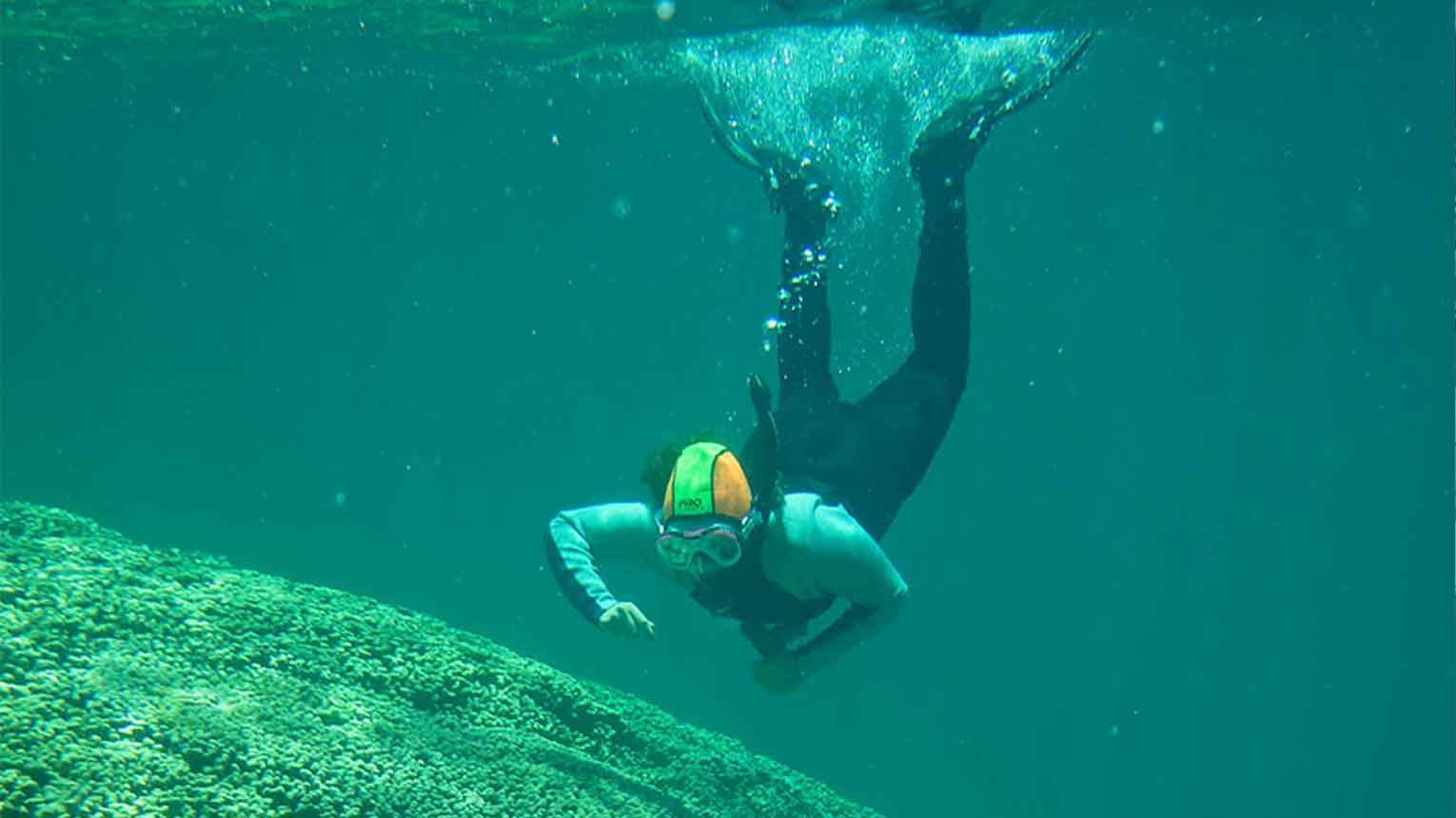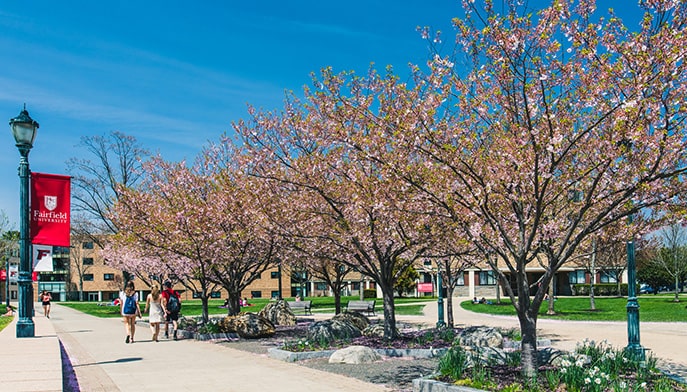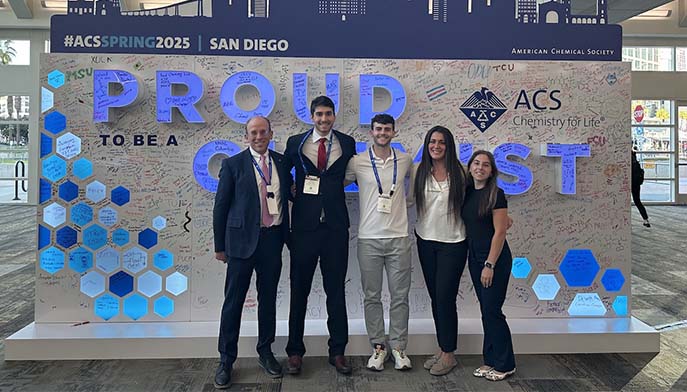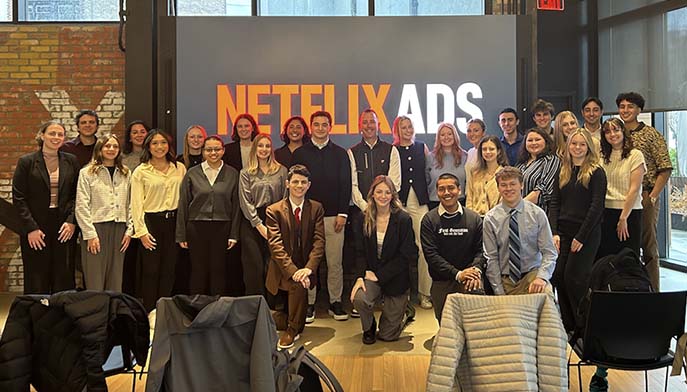Dr. Counsell’s research asks questions about how marine ecosystems vary through space and over time. Much of her work has focused on human inputs on reef ecosystem health.
The further questions posed by Dr. Counsell’s work, she explained, are, “How can we minimize our impact? Or, how can we restore a system that we’ve already damaged?” Officially, Dr. Counsell’s two major research projects are titled “Adjacent Habitat Quality” and “Reef Fish Recruitment.”
For “Adjacent Habitat Quality” she studied the Cauliflower Coral, a common coral with a relatively small (basketball-sized) branching structure. Dr. Counsell studied the community of small fishes and invertebrates (including shrimps and crabs) that live between the branches of this coral colony. These areas are also known as “cryptic reef communities” because one could easily snorkel near these corals and completely miss them; they are blended into the coral in such a way that a flashlight is necessary to see them. She also looked at how the numbers of these species increase or decrease based on their proximity to human activity.
In “Reef Fish Recruitment,” Dr. Counsell observed and tracked the lifecycle of baby fish or “recruits” and used plankton samples to catch and study reef fish larvae. Fish recruitwise, she focused on three particularly telling families of reef fish: surgeonfish (family Acanthuridae), parrotfish (family Scaridae), and butterflyfish (family Chaetodontidae). This helped Dr. Counsell “to better understand how these larvae exist and how they move through space and time.” But the larvae can be elusive, so she also conducted in-depth surveys of the reef habitat, specifically searching for small reef fish, or the recruits to the reef.
“The more we can understand about those little baby fish,” Dr. Counsell noted, “the more we can know about marine management and better understand how we can help keep reef communities healthy and diverse.”
For these projects, Dr. Counsell enlisted two undergraduate student research assistants: Rebecca Buonopane ’22 and Jillian Ryan ’22. Both seniors applied for University-funded grants to support their trip to Hawaii, during which they stayed in dormitories on Coconut Island — a private research lab only accessible by boat — for a month this past summer.
“It was so stunningly beautiful,” said Buonopane, a marine biology major who hopes for a career in the field. “There’s really just so much beauty in the world, and we have to remember these [wild] places even when we’re not close to them.”
“It’s rigorous and admirable,” Ryan said of the research that Dr. Counsell and her colleagues embarked on in the field, in the lab, and “behind the scenes.” An environmental studies major, Ryan hopes to build a career in marine biology as well.
A typical day for the pair during their month in Hawaii started around six or seven in the morning. They ate a light breakfast — to avoid sea sickness — and hopped onto the boat to begin the day out on the water and in the labs. The students geared-up in weighted, full-body wetsuits for snorkeling, and slathered on thick, white, reef-safe zinc oxide sunscreen.
On working alongside her students, Dr. Counsell said, “It’s fun to feel their energy in the lab, and to have a sense of that work growing because of them.”




